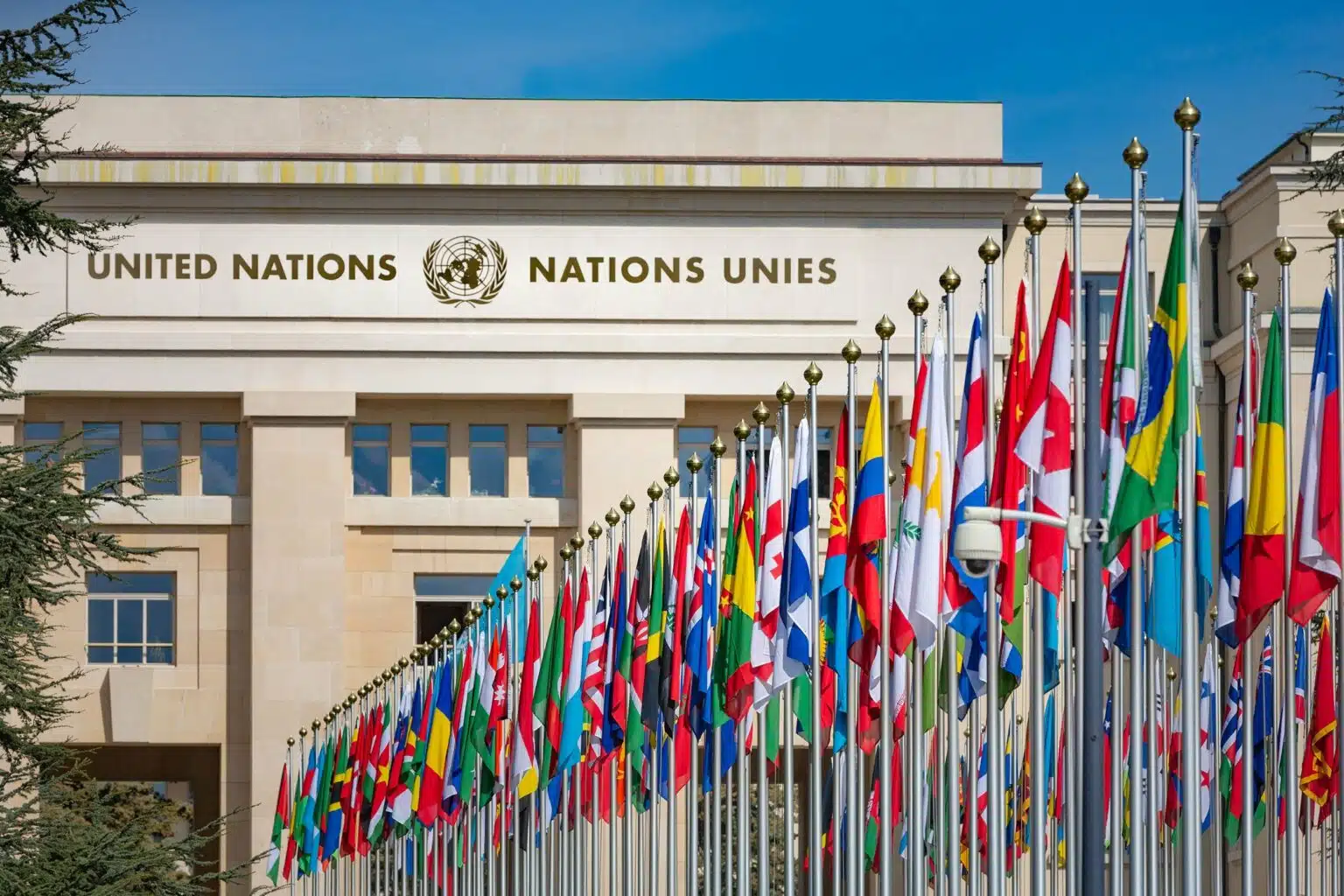
Russia’s nuclear threats are “totally unacceptable,” said the UN secretary general.
Russia’s plans to take over parts of Ukraine are “a violation of the UN charter and of international law,” he said.
António Guterres also said that the effects of the war could lead to a shortage of food next year. “Plain and simple, there won’t be enough food for everyone,” he said.
Guterres was speaking at the start of a UN security council meeting the day after Vladimir Putin raised the stakes in his invasion of Ukraine by announcing a partial mobilization and threatening to use nuclear weapons “if the territorial integrity of our country is threatened.” Putin also gave his approval to referendums in four Ukrainian regions that were meant to pave the way for annexation. This made it more likely that he would see Ukrainian efforts to retake those regions as a threat to Russia’s “territorial integrity” in the future.
The US president, Joe Biden, said that the nuclear threat was careless, and those who support Ukraine said that they would not stop sending military aid.
“Nuclear war used to be unthinkable, but now it’s being talked about. “This is unacceptable in and of itself,” Guterres said.
“I’m also very worried about rumors that so-called referendums will be held in parts of Ukraine where the government doesn’t have control,” he said. “It is against the UN charter and international law for another country to take over the land of another country by force or threat of force.”
Thursday’s meeting of the security council, which was led by the French foreign minister, Catherine Colonna, was mostly critical of Russia.
Wang Yi, China’s foreign minister, repeated Beijing’s position that the UN charter and territorial integrity must be supported, without directly criticizing Russia, which is an ally. In a carefully worded speech, Wang didn’t say anything to help Moscow, though.
Karim Khan, the head prosecutor of the International Criminal Court (ICC), told the council about the investigation of mass graves found in Ukrainian towns that Russia had taken over. Khan said, “The echoes of Nuremberg should be heard today.” He was referring to the way the Nazis were tried for war crimes.
Sergei Lavrov, Russia’s foreign minister, didn’t respond to Guterres’s comment. Instead, he repeated Moscow’s discredited claims that “neo-Nazis” were running Ukraine and that the war started because Russian speakers in the Donbas were mistreated. He said that Russia didn’t trust the ICC. Lavrov was not in the room when the ministers before him spoke, and he left as soon as he was done.
The expansion of Russian conscription, which was originally meant to include only 300,000 soldiers, has led to protests all over Russia and a large number of men of military age leaving the country.
Since Putin has made the war worse and Ukrainian forces have lost territory, a new round of sanctions is being thought about. At a meeting in Brussels, the foreign ministers of the EU agreed to work on a new package of economic and personal measures.
Guterres also talked about how the Black Sea grain initiative, which was set up by the UN, had helped export more than 4.3 million tonnes of food. As a result, Guterres said, food prices had dropped sharply.
But he said that a drop in the amount of fertilizer and ammonia that Russia exported was already causing shortages in West Africa and other places. “Next year, there could be a food supply crisis if the fertilizer market isn’t stabilized,” he said.
In his speech on Wednesday, Biden said that international sanctions do not apply to food and fertilizer.
“Let me be very clear about something: Our sanctions make it clear that Russia can still export food and fertilizer. No limitation. “Russia’s war is making it harder to get food, and only Russia can stop it,” he said.
James Cleverly, the UK’s foreign secretary, said something similar at Thursday’s meeting of the Security Council. He blamed Moscow for the crisis.
He said, “Let’s be clear: we are not banning food.” “Because of what Russia does, food and fertilizer can’t get to developing countries. Russia’s actions and bombs are to blame for the damage to Ukraine’s farms and the delay of its exports.












